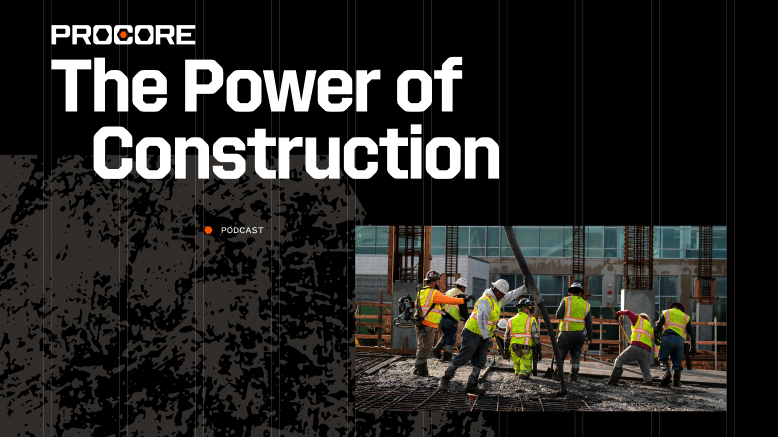— 9 min read
How to Be a Responsive, Responsible Bidder


Last Updated Aug 14, 2024

Ben Ashburn
Staff Trainer & Program Manager
22 articles
Ben Ashburn is a Senior Construction Education Trainer at Procore. After a successful career as a construction estimator — working his way up from estimating manager to senior estimator — Ben has spent the most recent part of his career in construction sharing his skills with other as a construction educator. Ben has an extensive background in construction education: He has been an assistant professor in the Department of Construction Science at Texas A&M, and lectured about estimating, scheduling, management, and other related construction topics at Murray State University. He has been a construction training and learning development partner with Procore since 2019.

Megan Duncan
Megan Duncan is an award-winning journalist based in Hannibal, Missouri. Her work has been featured on Muddy River News, Hannibal Courier-Post, The Whig, Hannibal Magazine, Q Magazine and Her View from Home. She has won two Best of Press Awards including first place from the Illinois Press Association for Localized National Story and third place from the Missouri Associated Press for best humor column. She holds a Bachelor of Arts in Communication from Quincy University.
Last Updated Aug 14, 2024

A fundamental requirement of construction bidding is being a “responsive” and “responsible” bidder. On public construction projects, the agency is often required by law to award the contract to the lowest responsive bid submitted by a responsible bidder. Failure to meet either of these standards could result in automatic disqualification, regardless of the quality of your estimate.
In this article, we explain exactly what “responsive” and “responsible” mean when it comes to the construction bidding process, and how to ensure your bid doesn’t get rejected.
Table of contents
Qualities of a Responsive, Responsible Bidder
In general, a responsive bid meets all requirements of the bid submission while a responsible bidder meets the performance and financial qualifications established by the project owner.
Responsive generally refers to procedural compliance – it means that the bidder followed all instructions and requirements on the Invitation to Bid (ITB) or Request for Proposal (RFP).
Responsible refers to the contractor’s qualifications, resources, and capabilities to fulfill the contract requirements. These criteria are typically listed in the bidding documents.
Federal construction projects are governed by the Federal Acquisition Regulation (FAR), which provides detailed definitions, rules and procedures for bidding compliance and qualification.
On public construction projects over a certain contract value threshold, the agency is often required by law to award the contract to the lowest responsive bid submitted by a responsible bidder. This means that even if the contractor with the lowest bid, you could still lose the bid without full compliance.
In a previous job, I submitted a bid for a project with the state of Illinois. It was a small job – the bid was only about $22,000. The scope involved some steel elements, like steel handrails and treads. One of the bid requirements was to submit a certification letter from the American Institute of Steel Construction (AISC).
At the public bid opening, they unsealed the envelopes and reviewed the contents. They found that my company was missing the AISC certification letter. That missing document led to our disqualification, even though we had the lowest bid by a small margin. This experience taught me the importance of meticulously following every bid requirement.

Ben Ashburn
Staff Trainer & Program Manager
Procore Technologies
Private vs. Public Projects
Private projects are not generally required to adhere to the same requirements as public projects because they are funded differently.
Privately funded projects are typically not governed by the same laws and regulations as a public project, in part because they do not use tax dollars. The project owner is free to establish their own bidding requirements and standards for qualifications. Private owners often negotiate contracts between the project owner and bidder. Instead of the lowest bid, a bidder might be selected based on qualifications, reputation or an established working relationship.
Bid Thresholds
Bid thresholds, or bid limits, ensure an open and competitive bidding process in public projects by requiring projects above a certain dollar amount to be publicly advertised. This lends itself to competitive pricing and better value in the public entity’s use of tax dollars. This also provides the public sector with accountability for contract awards by allowing a wide range of contractors to bid.
Bid limits are set by state law, and even then, often differ by municipal code within the states.
For example, the City of Los Angeles must go through a competitive bidding process for projects estimated to cost more than $25,000. Projects estimated to cost less than $25,000 are not required to be formally advertised. Meanwhile, the threshold in Illinois township and counties is $30,000.
Responsive Bidding
The criteria for an ITB varies depending on the project. Requirements can include, but are not limited to:
- A sealed envelope labeled according to specifications
- A bid guarantee
- A cost estimate
- A contractor's license and other qualifying documents
- Attendance at a pre-bid meeting
While there are many different project types, their funding falls under either privately funded or taxpayer-funded.
Responsible Bidding
A responsible bidder refers to the bidder who has the necessary qualifications, financial resources and operational capacity to fulfill the contract requirements. The factors used to assess responsibility can vary widely depending on the type of project, but may include:
- Adequate financial resources
- Sufficient workforce capacity
- Demonstrated experience successfully delivering the same type of project
- Professional certifications
- Years of experience
- Zero history of felony convictions (within a certain period of time)
Common Bidding Requirements
While the specific requirements will be governed by the relevant federal, state or municipal statutes, there are some common requirements to determine a contractor’s responsiveness and responsibility. See the instructions in the bidding documents and local regulations for the compliance requirements on a specific project.
Licensing, Registration & Certification
Although license requirements for an ITB will vary according to each project or state requirements, some common licenses and registrations could include:
Contractor License
General contractor license is a requirement in many states, but the requirements can vary.
Special Licenses
Some states require separate licenses for specific types of construction work, like asbestos abatement or HVAC.
Business Registration
The bidder must have a current Unified Business Identifier (UBI) number.
Technical Certification
Depending on the scope of the project, technical certificates may be required to demonstrate proficiency.
Bid Bond
In some cases, a bid bond may be all that is required to meet the “responsible” standard. In order to issue a bid bond, the surety company will typically review the qualifications of the bidder by evaluating their financial health and previous project performance, among other factors.
Most federal projects are required by the Miller Act to obtain a bid bond. States typically have similar bonding requirements. However, the project owner may set additional financial requirements beyond the bid bond.
Submission Deadline
Most ITBs will include a very specific deadline for bid submissions. Missing by the deadline even by one minute can make the difference between being a responsive or a non-responsive bidder. The deadline should be stated clearly on the bid invitation.
Enforcing the strict deadline is another way to ensure fairness to all bidding parties.
Pre-Bid Meeting Attendance
Many projects require attendance at a pre-bid meeting in order to be a responsive bidder.
It is important to make an immediate note of when the meeting is scheduled, because if you miss it, your bid could be disqualified on bid day. Attendance is usually taken at the pre-bid meeting and all bidders who are not listed will be considered non-responsive.
Pre-bid meetings are also helpful in the bidding process and in determining whether the project is for you.
Project details are usually discussed by the owner’s representative along with the architect or engineer. The meeting often takes place at the project site allowing potential bidders to better understand the project and make a bid or no-bid decision on the project. Evaluating the site can also help determine equipment requirements and other needs, such as power line locations.
Pro Tip
Take advantage of the pre-bid meeting by taking pictures and video, so when you are back at your desk later, working up prices and talking to subcontractors, you can remember what you saw. You might forget things like, “Do I have to rip up the tile in that room, or is it fine as it is?"
Bid Tabulation & Review
When sealed bidding is used on public projects, the bidding process culminates in a public event known as bid day, when bids are due. This is an exciting, often tense, event when contractors learn whether they won or lost the bid.
Bidders typically meet at a specified time and location to turn in their bids. Sometimes the bid consists of two envelopes with the first envelope containing the bid form, alternate amounts, and acknowledgement of addenda. A second envelope sometimes holds a bid bond, which is generally signed by a surety company.
Other times only one envelope is necessary. The ITB should specify the number of envelopes, and following that directive is vital to be considered responsive.
Bid Tabulation
After bids are received in a sealed bidding process, the architect or the owner’s representative, who is unassociated, reads the bids aloud. This is often a nail-biting but exciting process for bidders. As the numbers are called and reviewed in public, contractors will learn in real-time whether they are considered responsive and responsible — and whether they submitted the lowest bid.
At many meetings, the tabulated bids are tracked on a whiteboard as they are announced. Non-responsive and irresponsible bidders are immediately disqualified. The remaining bids are displayed on the board, with bid prices shown clearly. This provides visual confirmation to everyone in the room that the lowest bidder was chosen.
Although the bidding process is meticulous, those calling the bids usually work under strict regulations to ensure the bid is awarded fairly and without bias. A bid award that is not in compliance with the ITB, or is not the lowest bidder, could result in a bid protest from other bidders.
Sometimes a contract for a public project is improperly awarded. If the contract was not awarded to a responsible bidder with the lowest responsive bid, competing contractors could have grounds to protest the bid.
Dive deeper – Bid Tabulation: Must-Have Criteria for Comparing Bids (With Free Template)
Improperly Awarded Bids
There are many reasons an award can be questioned. At times, a bid protest is initiated by competing bidders who were present on the public bid day.
Some reasons for an improper award could include but are not limited to:
- A missed deadline — even by a few minutes
- Improper certification or licensing for the project
- Inadequate experience or qualifications
- Failure to fully comply with the ITB (non-responsive)
- Improper method of bid procurement by the project agency, such as advertising the ITB
In such cases, it is important for the protestor to first seek a resolution from the contracting agency. Most agencies value a smooth project execution and are open to resolving disputes amicably. A formal protest can lead to litigation, project delay, and possible loss of funding, which are consequences the agency aims to avoid.
A formal bid protest can be filed when no resolution is made.
Courses about construction.
For construction.
Unlock your career potential with our free educational courses on Health & Safety, Data in Construction, and more.
Bidding for Success
While the requirements of public bidding varies according to project and jurisdiction, one thing always rings true — careful attention to detail is vital.
Whether preparing a responsive bid, attending a pre-bid meeting, attending a bid day or working through a bid protest, keeping track of dates, requirements and proper documentation will always be one of the most important elements of successful bidding.
Was this article helpful?
Thank you for your submission.
100%
0%
You voted that this article was . Was this a mistake? If so, change your vote
Scroll less, learn more about construction.
Subscribe to The Blueprint, Procore’s construction newsletter, to get content from industry experts delivered straight to your inbox.
By clicking this button, you agree to our Privacy Notice and Terms of Service.
Thank you!
You’re signed up to receive The Blueprint newsletter from Procore. You can unsubscribe at any time.
Categories:
Written by

Ben Ashburn
Staff Trainer & Program Manager | Procore Technologies
22 articles
Ben Ashburn is a Senior Construction Education Trainer at Procore. After a successful career as a construction estimator — working his way up from estimating manager to senior estimator — Ben has spent the most recent part of his career in construction sharing his skills with other as a construction educator. Ben has an extensive background in construction education: He has been an assistant professor in the Department of Construction Science at Texas A&M, and lectured about estimating, scheduling, management, and other related construction topics at Murray State University. He has been a construction training and learning development partner with Procore since 2019.
View profile
Megan Duncan
Megan Duncan is an award-winning journalist based in Hannibal, Missouri. Her work has been featured on Muddy River News, Hannibal Courier-Post, The Whig, Hannibal Magazine, Q Magazine and Her View from Home. She has won two Best of Press Awards including first place from the Illinois Press Association for Localized National Story and third place from the Missouri Associated Press for best humor column. She holds a Bachelor of Arts in Communication from Quincy University.
View profileExplore more helpful resources

What Happens When Data Drives the Business?
Construction has long been seen as a low-margin industry. But what if the real problem isn’t the margins—it’s how decisions get made? In episode 17 of The Power of Construction,...

Vet Contractors with Confidence: A Guide to Smart Bidder Selection
Selecting the right bidder is one of the most consequential decisions a construction team makes — yet it often happens under tight deadlines, with limited visibility into the long-term implications....

The Construction Bid Interview & Follow-up: Closing the Deal
During construction project bidding, the interview is often the last part of the request for proposal (RFP) process and one of the most influential. For teams that advance to the...
Construction Business Development: Tracking and Winning the Right Opportunities
Construction business development isn’t just a response to deadlines: It’s a long-term strategy rooted in focus, visibility and timing. Delays, funding gaps and market pressure have made it harder to...
Free Tools
Calculators
Use our calculators to estimate the cost of construction materials for your next project.
Templates
Find a template to help you with your construction project tasks.
Material Price Tracker
Get the latest U.S. retail prices and view historical trends for common building materials.
Glossary
Explore key terms and phrases used in the industry.
